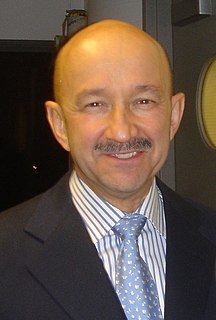A Quote by Hannah Arendt
At any rate, nothing was more characteristic of him [Walter Benjamin] in the thirties than the little notebooks with black covers which he always carried with him and in which he tirelessly entered in the form of quotations what daily living and reading netted him in the way of "pearls" and "coral." On occasion he read from them aloud, showed them around like items from a choice and precious collection.
Related Quotes
Sometimes I get so tired of trying to convince him that I love him and shall love him for ever. He pounces on my words like a barrister and twists them. I know he is afraid of that desert which would be around him if our love were to end, but he can't realise that I feel exactly the same. What he says aloud, I say to myself silently and write it here.
If we are always reading aloud something that is more difficult than children can read themselves then when they come to that book later, or books like that, they will be able to read them - which is why even a fifth grade teacher, even a tenth grade teacher, should still be reading to children aloud. There is always something that is too intractable for kids to read on their own.
It is natural for a young fellow to like the acquaintance of females and customary for him to keep them company when occasion serves. Some one of them is more agreeable to him than the rest; there is something, he knows not what, pleases him, he knows not how, in her company. This I take to be what is called love with the greatest part of us.
What is called eloquence in the forum is commonly found to be rhetoric in the study. The orator yields to the inspiration of a transient occasion, and speaks to the mob before him, to those who can hear him; but the writer, whose more equable life is his occasion, and who would be distracted by the event and the crowd which inspire the orator, speaks to the intellect and heart of mankind, to all in any age who can understand him.
I've still got Paul Scholes' shirt at home which I swapped with him once. When I was at Liverpool he was one of the players I liked most. Maybe he's not valued as much as he should be in England because of the style of football there and because he keeps a low profile. Perhaps he would have been more valued in Spain, where midfielders like him form part of the 'ideal.' Fans in Spain rate him very highly and I admire him a huge amount.
Stevenson had noble ideas--as did the young Franklin for that matter. But Stevenson felt that the way to implement them was to present himself as a thoughtful idealist and wait for the world to flock to him. He considered it below him, or wrong, to scramble out among the people and ask them what they wanted. Roosevelt grappled voters to him. Stevenson shied off from them. Some thought him too pure to desire power, though he showed ambition when it mattered.
For it is a horrible blasphemy to imagine that there is any work by which you should presume to pacify God, since you see that there is nothing which is able to pacify Him but this inestimable price, even the death and the blood of the Son of God, one drop of which is more precious than the whole world.
Do let him read the papers. But not while you accusingly tiptoe around the room, or perch much like a silent bird of prey on the edge of your most uncomfortable chair. (He will read them anyway, and he should read them, so let him choose his own good time.) Don't make a big exit. Just go. But kiss him quickly, before you go, otherwise he might think you are angry; he is used to suspecting he is doing something wrong.







































